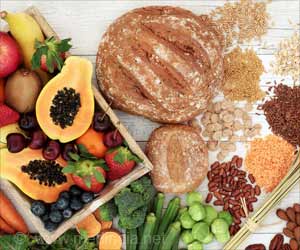Consumption of excessive amounts of red meat and alcohol increases the risk of developing colorectal cancer at a young age, shows a new study.
- Early-onset colorectal cancer may give rise to severe complications in the long run
- Red meat and alcohol in excess can act as pre-disposing factors for developing colorectal cancer at a young age
- Low amount of fibre in diet could elevate the risk of cancer in rectum
Read More..
Previous findings from electronic health records and small-scale interview-based epidemiologic studies revealed that sedentary lifestyles, lesser intakes of vegetables and citrus fruits, and greater use of processed meat were associated with the risk of developing colorectal cancer.
The new study showed some additional factors that could potentially launch colorectal cancer in younger ones.
Between 1992 and 2013, there was almost a doubling in the number of cases reported for early-onset colorectal cancer (from 8.6 to 13.1 per 100,000). In addition to this noticeable surge, it has been shown that 1 in 10 colorectal cancer diagnosis occurs in people under 50.
The reporting rate of early-onset colorectal cancer is concerning for researchers as the outcomes will be worse in early-onsets when compared to the later ones.
The research aimed to investigate whether there is an overlap between the risk factors for late-onset CRC and early-onset CRC by using data pooled from 13 population-based studies. The scientists studied two groups of people (3,767 colorectal cancer cases and 4,049 controls who are under 50 years of age and 23,437 colorectal cancer cases, and 35,311 controls in people who 50 years and above) to derive conclusive evidence.
BMI and Smoking are the Exceptions
Other than the lifestyle patterns, infrequent usage of NSAIDs, lower educational attainment, and a history of diabetes were also associated with developing CRC at a young age.
In conflict with the previous studies, this study eliminates the risk of early-onset CRC associated with increasing BMI and smoking. While evaluating the risks by anatomical subsites, a lower intake of dietary fibre was found to be more strongly related to rectal than colon cancer.
Richard Hayes, the lead researcher said, "This first large-scale study of non-genetic risk factors for early-onset colorectal cancer is providing the initial basis for targeted identification of those most at risk, which is imperative in mitigating the rising burden of this disease."
References:
- Nongenetic Determinants of Risk for Early-Onset Colorectal Cancer, JNCI Cancer Spectrum, Volume 5, Issue 3, June 2021, pkab029 - https://doi.org/10.1093/jncics/pkab029
Source-Medindia















